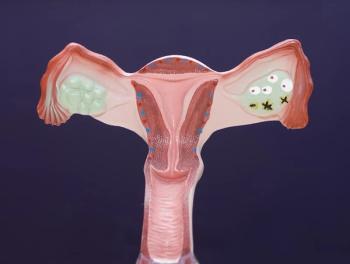
Miami Breast Cancer Conference® Abstracts Supplement
- 38th Annual Miami Breast Cancer Conference® - Abstracts
- Volume 35
- Issue suppl 1
17 TiP The Treatment of Breast Cancer With Percutaneous Thermal Ablation: A Phase 2 Screening Trial
Elles van de Voort, MSc1
1Franciscus Gasthuis & Vlietland Hospital, Rotterdam, the Netherlands.
Background
Breast cancer is the most common type of cancer among women worldwide. Almost half of the tumors measure 2 cm. Patients with such tumors have an excellent prognosis with current surgical therapy, with a 5-year survival rate of 98% to 99%. Percutaneous thermal ablation has the potential to replace surgical treatment and improve the health-related quality of life of these patients. Radiofrequency ablation (RFA), microwave ablation (MWA), and cryoablation are especially promising techniques as alternatives to surgical resection, without jeopardizing current treatment effectiveness or safety. Success rates of RFA, MWA, and cryoablation are 82% to 87%, 83% to 90% and 74% to 75%, respectively. Due to great heterogeneity among studies and a large variation in complete ablation rates, a formal recommendation on the best technique for a phase 3 study is not possible based on current literature. Additionally, too little is known about patient satisfaction and cosmetic outcome, immune response after thermal ablation, follow-up imaging, long-term benefits, and complications. Therefore, the objective of this study is to determine the efficacy rate in terms of complete ablation for the most promising method of thermal ablation—RFA, MWA, or cryoablation—for patients with early-stage breast cancer to warrant its inclusion in a randomized phase 3 trial comparing thermal ablation with surgery.
Methods
This is an open-label, randomized phase 2 screening trial. Postmenopausal women diagnosed with unilateral invasive cT1N0M0 breast cancer with a DCIS component 25% of the total tumor will be included. These patients will be randomized to RFA, MWA, or cryoablation. To evaluate whether the tumor was completely ablated, surgical resection will be performed 3 months after thermal ablation. The primary end point is the percentage of tumors with complete ablation at pathologic evaluation with α staining. Secondary end points are feasibility in an outpatient setting, degree of immune response, adverse events, patient satisfaction, cosmetic outcome, and the predictive value of MRI.
Trial Status
The trial has been approved by the ethical review board and is currently open to enrollment.
Articles in this issue
Newsletter
Stay up to date on recent advances in the multidisciplinary approach to cancer.




































